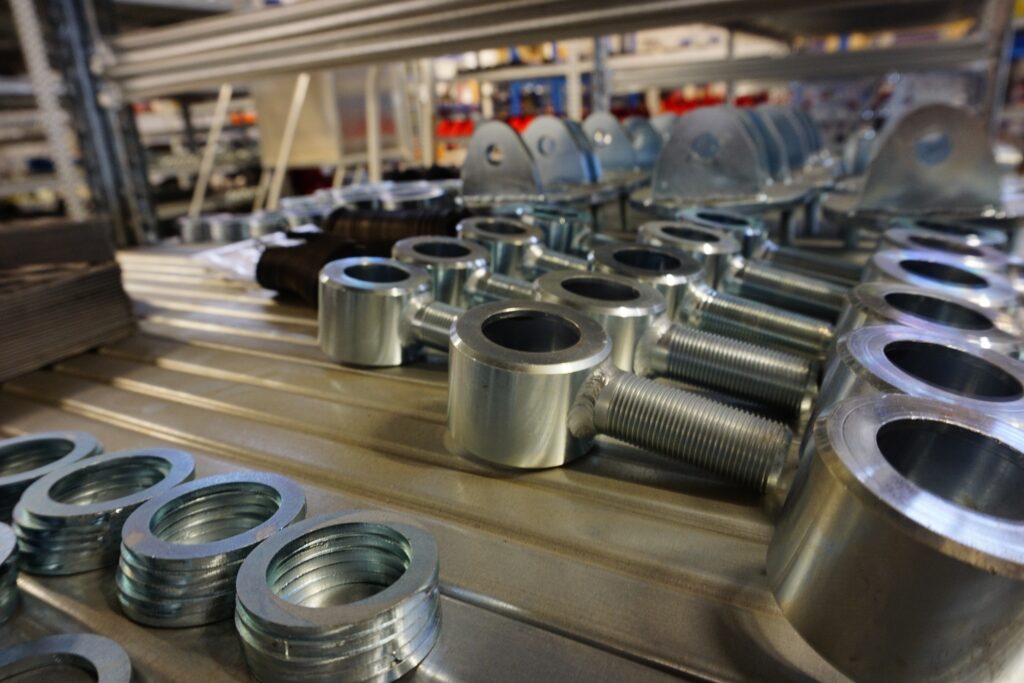Custom Tooling That Transforms Production Efficiency
Automotive manufacturing has always been about pushing limits: faster production, tighter precision, and lower costs. As vehicles grow more complex, manufacturers face more pressure to deliver perfect parts at faster rates. One tool that has helped the industry meet these demands is custom tooling.
Custom tooling means creating special equipment, jigs, or fixtures for a specific part or job. Instead of using one-size-fits-all tools, manufacturers design tools that match exactly what they need.
By tailoring tools to each project, companies can speed up production, reduce material waste, and ensure higher quality. The automobile industry built over 85 million motor vehicles in 2023. Even small improvements in production can make a significant impact.

Speeding Up Production with Custom Tooling
Manufacturing vehicles involves thousands of parts, many requiring tight fits and flawless shapes. Using generic tools often means adjusting settings between parts, which slows down the line. Custom tooling removes these slowdowns.
Manufacturers design tools to match the exact size, material, and shape of each part. This lets workers and machines move faster with less downtime.
For example, Krukemeier Machine & Tool uses multi-axis machining and high-speed EDM to produce complex parts. With custom fixtures, they reduce setup time and maximize machine use. Studies show that custom tooling can cut cycle times by 20–30% on average, depending on the part complexity.
Faster production increases the overall output of sedans, SUVs, and other motor vehicles. It also supports the growing market for light trucks. In recent years, light trucks have made up nearly 75% of all vehicle sales in the United States. In a competitive field, being able to produce a variety of motor vehicles quickly gives companies a major advantage.
Reducing Manufacturing Costs with Tailored Tools
Initially, custom tooling appears to cost more than standard tools. Designing a new fixture costs more upfront than using a standard one. However, over time, tailored tools save manufacturers serious money.
Generic tools often cause small mistakes, such as misalignments, which force companies to scrap or rework parts. The National Institute of Standards and Technology (NIST) reports that manufacturing defects cost U.S. factories over $17 billion annually. Custom tooling helps minimize errors, saving companies money by reducing wasted materials, labor, and machine time.
Also, custom tooling protects manufacturing equipment. Matching tools to specific materials like aluminum, titanium, or steel, machines operate more efficiently and last longer. Krukemeier Machine & Tool’s work with exotic alloys and tight tolerances shows how tailored tooling extends machine life.
Factories using custom tools can also support “lights-out manufacturing,” where machines run unattended during off-hours. This allows manufacturers to increase output without the cost of additional shifts. A huge cost-saving strategy, especially for high-demand sectors of the automotive industry.
Achieving Higher Accuracy and Quality
Modern vehicles, especially electric and autonomous ones demand parts with extreme accuracy. Small errors can lead to system failures or recalls, which are costly and damage brand trust.
Custom tooling allows manufacturers to consistently meet strict tolerances. Tools made for the exact part dimensions reduce variation during machining. As a result, parts can meet common feature tolerances of +/- .0005 inches—a level necessary for many critical automotive components.
Facilities use wire EDM machines and advanced grinding technologies to maintain tight tolerances across batches. Whether it’s for engines, brake systems, or electronic components, accuracy ensures safety and performance. Providing the final products meet all industry standards for motor vehicles.
If parts meet specs the first time, companies spend less time and money on rework and final quality control, helping speed vehicles to dealerships and customers.
The Role of Custom Tooling in the Automotive Industry
By designing tools specifically for each project, manufacturers can increase production speed, lower costs, and produce higher-quality parts. As the automobile industry continues to innovate, especially with light trucks, electric vehicles, and autonomous driving, precision and efficiency will only become more critical. Custom tooling solutions will continue to play a major role in helping the automotive industry meet growing global demands in major markets like the United States.
Explore how custom tooling can enhance efficiency and performance in automotive manufacturing. Reach out today!
